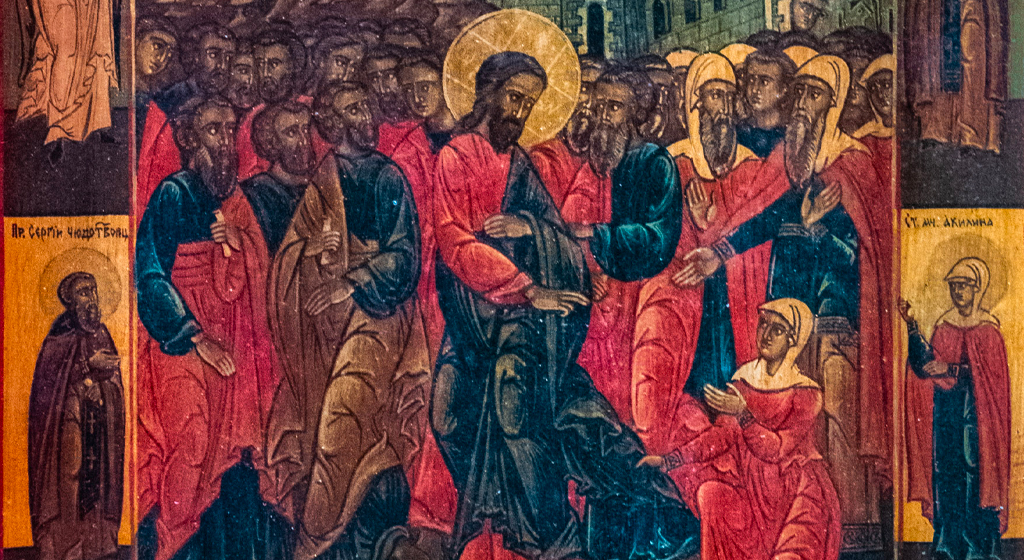Memory of the Poor
Reading of the Word of God
Alleluia, alleluia, alleluia
This is the Gospel of the poor,
liberation for the imprisoned,
sight for the blind,
freedom for the oppressed.
Alleluia, alleluia, alleluia
Sirach 35,1-15
One who keeps the Law multiplies offerings; one who follows the commandments offers communion sacrifices. Proof of gratitude is an offering of fine flour, almsgiving a sacrifice of praise. To abandon wickedness is what pleases the Lord, to give up wrong-doing is an expiatory sacrifice. Do not appear empty-handed in the Lord's presence; for all these things are due under the commandment. The offering of the upright graces the altar, and its savour rises before the Most High. The sacrifice of the upright is acceptable, its memorial will not be forgotten. Honour the Lord with generosity, do not stint the first-fruits you bring. Add a smiling face to all your gifts, and be cheerful as you dedicate your tithes. Give to the Most High as he has given to you, as generously as your means can afford; for the Lord is a good rewarder, he will reward you seven times over. Do not try to bribe him with presents, he will not accept them, do not put your faith in wrongly motivated sacrifices; for the Lord is a judge who is utterly impartial. He never shows partiality to the detriment of the poor, he listens to the plea of the injured party. He does not ignore the orphan's supplication, nor the widow's as she pours out her complaint. Do the widow's tears not run down her cheeks, as she accuses the man who is the cause of them?
Alleluia, alleluia, alleluia
The Son of Man came to serve,
whoever wants to be great
should become servant of all.
Alleluia, alleluia, alleluia
After having criticized insincere sacrifice of many believers (34:18-26), Ben Sirach, the author of the book of Sirach, urges them to combine their worship with the observance of the Law: "One who keeps the law makes many offerings; one who heeds the commandments makes an offering of well-being" ?(v. 1). Obviously worship must be practiced and believers are warned: "Do not appear before the Lord empty-handed...The offering of the righteous enriches the altar, and its pleasing odour rises before the Most High" (vv.6-8). ?Furthermore their offering should be done with joy, with enthusiasm, willingly, with a merciful heart that pours out its love also on the poor. Ben Sirach warns, the "one who gives alms sacrifices a thank-offering" (v. 4). Not only; believers should distance themselves from injustice and oppression: "to forsake unrighteousness is an atonement" (v.5). This believers' focus on worship and the observance of the law and the practice of love are clearly present in this passage of the Sirach, as they are in the pages of prophets of the entire First Testament. Not only does Jesus reaffirm all this, but he brings it to fulfilment when he unites love for God and love for your neighbour. In these two commandments - Jesus says - the Law and the Prophets are fulfilled. That is why even today, observing the Word of God, helping the poor and the weak, is the true worship we must present to the Lord. For Jesus, living with a heart full of mercy, means to live in the very way of being of God who is merciful. The Lord, with whom "there is no partiality" -a s Ben Sirach writes (v. 15) - gives his love to all but with a preference: he will first listen to the prayer of the oppressed, the orphan, and the widow. ?If a disciple wishes to stand in God's presence, he or she must practice this same mercy. ?
